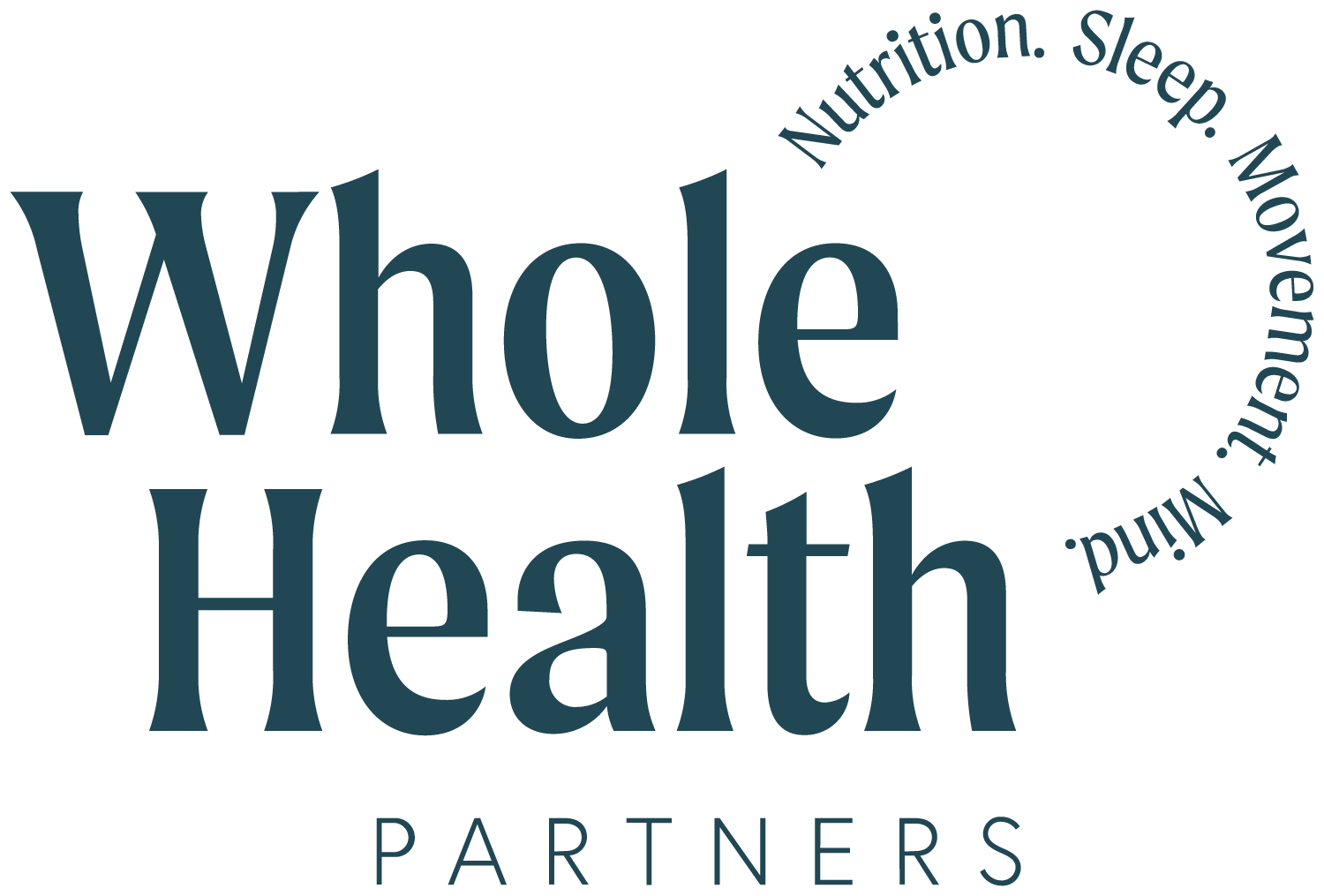Managing the Stages of Menopause: From Perimenopause to Postmenopause
Menopause marks the natural end of a woman's reproductive years. It's a complex biological process involving hormonal shifts and physical and emotional changes. This journey typically unfolds in three stages: perimenopause, menopause itself, and postmenopause.
At Whole Health Partners, we believe in empowering women to navigate these stages with confidence and grace. Our team of expert providers offers personalized telehealth services designed to address your unique needs and support you throughout this transformative time.
Why Understand the Stages?
Recognizing the different stages of menopause is crucial for several reasons:
Early Intervention: Identifying early signs of menopause can enable you to seek guidance from a healthcare provider and implement strategies for optimal health.
Symptom Management: Understanding the typical symptoms associated with each stage allows you to address them and proactively improve your quality of life.
Long-Term Health: Recognizing the potential long-term health implications of menopause, such as increased risk of osteoporosis and heart disease, allows for timely preventive measures.
Perimenopause: The Transition Phase
Perimenopause is the transitional phase leading up to menopause. This can last 4-8 years. The average age for onset of perimenopause is between 40-58, but it can start as early as 35. During this time, the ovaries gradually produce less progesterone and estrogen, leading to fluctuating hormone levels. These changes can result in a wider variety of common symptoms that some women experience, as listed below.
Symptoms of Perimenopause
Irregular Periods: Changes in menstrual cycle length and flow are common.
Hot Flashes: These sudden feelings of intense heat, often accompanied by sweating, are a hallmark of perimenopause.
Mood Swings: Hormonal fluctuations can impact mood, leading to irritability, anxiety, or depression.
Night Sweats and Sleep Problems: Disrupted sleep can significantly impact overall well-being.
Other: Achy joints, brain fog, forgetfulness, weight gain, libido changes, breast pain, headaches, skin and hair changes, fatigue, UTIs, and more.
Recognizing these early signs and seeking guidance from a healthcare provider can help you manage symptoms effectively. At Whole Health Partners, we provide tailored support during perimenopause, addressing your concerns and guiding you through this transitional phase.
Menopause: A Moment of Transition
In everyday usage, the term ‘menopause’ is often used interchangeably with both peri and postmenopause—both of which refer to an extended process and period of time. However, menopause itself technically refers to the specific moment in time when you transition from one of these phases to the other. It is officially reached a full year after your last menstrual period.
The natural menopause transition typically occurs in the late 40s or early 50s. In some cases, however, menopause can occur as early as the mid-30s. (Menopause that occurs before the age of 40 is referred to as ‘premature menopause’ or ‘early menopause.’)
Postmenopause: Life After Menopause
Once a person in perimenopause has not menstruated for 12 consecutive months, they are officially considered to be in postmenopause—and the postmenopause stage lasts for the rest of that person’s life. Many symptoms of this life stage are essential to monitor and manage.
Symptoms of Postmenopause
Permanent Cessation of Menstruation: Menstruation completely stops.
Hormonal Changes: Estrogen and progesterone levels decline significantly, impacting various bodily functions.
Vaginal Dryness: Changes in vaginal tissue can lead to discomfort and a reduced sex drive.
Continued Symptoms: Hot flashes (vasomotor symptoms) and mood changes may persist.
On the other hand, postmenopause also brings its own health considerations to be aware of, including, but not limited to, some long-term health conditions.
Postmenopause Long-term Health Risks
Osteoporosis: Decreased estrogen levels increase the risk of bone loss.
Heart Disease: Hormonal changes can impact cardiovascular health.
Urinary Incontinence: Weakening of pelvic floor muscles can contribute to urinary leakage.
Lifestyle Strategies for Managing Symptoms of Menopause
At Whole Health Partners, our telehealth services integrate nutrition, movement, and mindset support to help you effectively manage the symptoms of both perimenopause and postmenopause. We focus our counseling on "4 Key Elements" and work with our patients to develop long-term strategies to improve their well-being. These four elements are:
Nutrition: Maintaining a balanced diet rich in fruits, vegetables, and whole grains can support blood glucose and focusing on whole foods will promote hormonal balance and overall health.
Physical Activity: Regular exercise, such as strength training and resistance training, helps to improve bone health, counter weight gain, and reduce stress.
Sleep Optimization: Prioritizing sleep hygiene, such as establishing a relaxing bedtime routine, can improve sleep quality despite hormonal fluctuations.
Stress Management: Incorporating mindfulness practices like meditation and deep breathing can help build resilience and manage stress effectively.
While the majority of the tactics and strategies we recommend for perimenopause remain relevant and helpful in the postmenopausal phase, there are also some specific differences between the two.
For example, the hormonal fluctuations that accompany perimenopause can be marked by low energy levels, increased stress, and the risk of muscle loss. Individuals with a history of disordered eating may also be at increased risk of relapse during this time. That’s why we counsel patients trying to manage their weight during perimenopause to be careful about excessive calorie restrictions or extended periods of fasting.
It is crucial to ensure you are fueling your body sufficiently and eating a healthy diet. By contrast, this is less of a concern in postmenopause when hormonal fluctuations tend to stabilize. This means patients have more flexibility to experiment with strategies like intermittent fasting.
Regular health check-ups are essential throughout a person's life, but we strongly recommend talking with your provider about increasing the frequency of check-ins in postmenopause. We also recommend working with a lifestyle medicine professional to proactively manage bone density, heart health, and overall well-being risks.
At Whole Health Partners, we integrate preventive care into our personalized telehealth plans and work closely with primary care providers to coordinate our recommendations with a patient's overall health needs.
Empowering Women Through the Menopause Journey
Menopause is a natural transition, not a limitation. With knowledge, lifestyle changes, and expert support, you can confidently embrace this new chapter and improve your quality of life.
Contact Whole Health Partners today to learn more about our personalized telehealth solutions and embark on your menopause journey with expert guidance.
Menopause FAQ
How do I know which stage of menopause I am in?
Changes in the menstrual cycle, such as irregular periods or the complete cessation of menstruation, are the most reliable indicators.
What is the average age of menopause for each stage?
Perimenopause: Typically begins in the mid-40s.
Menopause: Usually occurs in the late 40s or early 50s.
How long does each stage of menopause last?
Perimenopause: Can last several years, varying greatly from woman to woman.
Menopause: This is a single point in time marking the end of menstruation (your last period).
Postmenopause: This stage continues for the rest of your life.
Are there treatment options to help manage menopause symptoms?
At Whole Health Partners, we do not prescribe or de-prescribe medications. However, discussing menopause treatments with your gynecologist (GYN) or primary care provider (PCP0) can help you understand your options.
Fezolinetant
Fezolinetant is a new type of non-hormonal medication specifically designed to treat hot flashes. It works by blocking a brain chemical that plays a role in temperature regulation. This can be a game-changer for women who can't or choose not to use hormone replacement therapy (HRT).
What are non-hormonal treatments for menopause symptoms?
Besides fezolinetant, non-hormonal options include certain antidepressants, gabapentin (a medication primarily used for nerve pain), and lifestyle changes like regular exercise, stress management techniques, and a balanced diet.
How can lubricants help with menopause symptoms?
Vaginal dryness is a common symptom due to declining estrogen levels. Lubricants can significantly ease discomfort during intercourse and improve overall vaginal comfort.
Is a hysterectomy a treatment for menopause?
A hysterectomy (removal of the uterus) is not a treatment for menopause itself. However, it may be considered for other gynecological conditions that can coincide with menopause, such as fibroids or endometriosis.
What are the benefits and risks of hormone replacement therapy (HRT)?
HRT is very effective for hot flashes, night sweats, and vaginal dryness. It can also help prevent bone loss. Your doctor can help you weigh the benefits and risks based on your individual health history.
Are there creams that can help with menopause symptoms?
Yes, vaginal estrogen creams can effectively treat vaginal dryness and discomfort. Low-dose estrogen creams applied directly to the vagina minimize the amount of estrogen absorbed into the bloodstream, potentially reducing certain risks associated with HRT.
Can supplements help with menopause symptoms?
While some women find relief from supplements like black cohosh or soy isoflavones, scientific evidence supporting their effectiveness is limited. Always consult your doctor before starting any new supplement, especially if you have existing health conditions or are taking other medications.
What are the potential side effects of menopause treatments?
Side effects vary depending on the specific treatment. HRT may cause breast tenderness, headaches, and mood swings. Non-hormonal options can have side effects like nausea, drowsiness, or dry mouth. It's essential to discuss potential side effects with your doctor to make informed choices about your treatment plan.
Important: At Whole Health Partners, we never prescribe or de-prescribe medicines. However, we want our patients to be informed and empowered to discuss all potential options with their PCP or GYN. With patients’ permission, we share our care plans with their PCP or other providers and coordinate closely to ensure effective and comprehensive care.
Explore Our Services
Women’s Health: Hormonal Health, Polycystic Ovarian Syndrome (PCOS), and Perimenopause/Menopause
Diabetes, Pre-Diabetes, Insulin Resistance, and Blood Glucose Management
High Blood Pressure/Hypertension Management
High Cholesterol Management
Lifestyle Medicine





